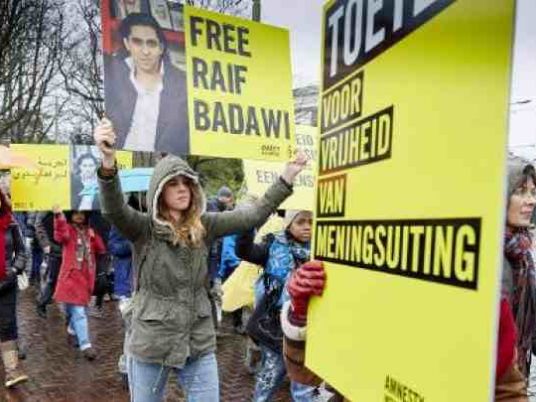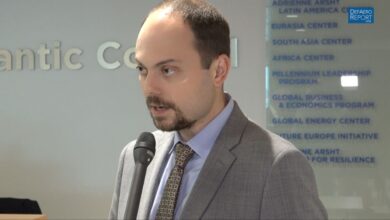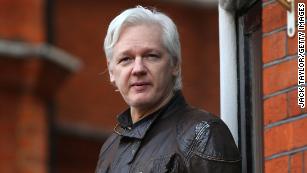
As the world's powerful mourn the deceased Saudi King Abdullah, don't forget about the horrors inflicted on blogger Raef Badawi, Amnesty International head Salil Shetty told AFP in an interview Friday.
Shetty was speaking on the sidelines of the snow-covered World Economic Forum in Davos, where the programme for Friday was upended by the passing of the Saudi leader.
Jordanian King Abdullah II left Davos early, hours before a planned speech, and the late king's half-brother, Prince Turki Al Faisal Al Saud, also flew back ahead of schedule to the Middle East.
"He had been ailing for some time, all the leaders in Saudi Arabia are pretty senior, and this is not a surprise," Shetty told AFP.
The problem, he added, was that Western leaders, hooked on Saudi oil, turned a blind eye to a swathe of human rights violations in the kingdom.
"The Saudi regime seems insensitive to human rights and human dignity and unfortunately they are also protected by many western countries because they have oil and because they are seen as allies in the fight against terrorism," he said.
Amnesty International considers essential the fate of blogger Badawi, whose sentencing to 1,000 lashes for insulting Islam has sparked a world outcry, especially in the wake of the Charlie Hebdo massacre carried out in France by Islamists.
Under international pressure, the Kingdom delayed Badawi's flogging, set for Friday, citing medical reasons.
"Nothing has changed as of now. Legally he is still going to be flogged every Friday and the only reason they are stopping is for his medical condition to improve so they can hurt him again," Shetty said.
This being Davos, Shetty turned his vision to the state of the world as a whole, the central purpose of the four day talk-fest, attended by 2,500 of the world's movers and shakers.
– French over-reaction –
Shetty voiced concerns about an overreaction in France to the Charlie Hebdo attacks and feared the French government could overly tighten security and crimp on privacy.
"Because we cannot forget what happened after 9/11. We had the Patriot act, we had Guantanamo, we had torture. I think that's a very cautionary tale — and as of now, reports from France are making us concerned," Shetty said.
Earlier this week, France unveiled a raft of measures to curb radicalisation and better monitor jihadists, two weeks after an Islamist killing spree in Paris that sent shock waves across Europe.
While in no way absolving the horrors of Islamist extremists in countries like Nigeria and Iraq, Shetty insisted that decades of human rights violations inflicted by the state could not be ignored.
In Nigeria, "Boko Haram violence and terrorism cannot be justified but we know that the north and north east have been historically excluded," he said.
"They don't have a political voice, they don't have economic choices, so young people are alienated," he said.
But the greatest concern was acts committed by the Nigerian military in its broad and roughshod campaign against Boko Haram.
"The Nigerian military just killed thousands of civilians just in the past year, Shetty said.
The rise of the Islamic State, with their "extreme forms of brutality and horrific human tragedy", can be in no way justified, he said.
"But … in the case of both Iraq and Syria, we had decades of state violations of human rights," he said




